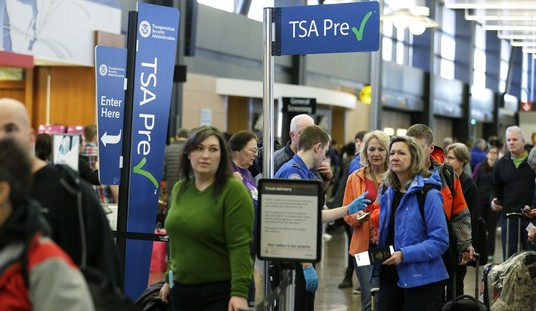The latest survey by the National Federation of Independent Businesses (NFIB) shows a drop in confidence in the nation's economic conditions. Debates over tariffs, uncertainty over tax cuts, and concerns about a possible recession have become prevalent among small business owners. The Small Business Optimism Index, which is conducted monthly, fell 3.3 points to 97.4, below the 51-year average and the most significant drop since June 2022.
If there’s a canary in the coal mine for America’s economic health, it’s the over 34 million small businesses in America that operate on the grassroots level in every corner of the country. These stores, shops, restaurants, and businesses employ 59 million citizens, accounting for nearly 50% of all jobs. Incredibly, between 1995 and 2021, small businesses represented 62% of all jobs created. As small business goes, so goes the nation.
With small business confidence cratering, House Republicans are now prioritizing enactment of a serious, pro-growth agenda focused on restoring confidence and giving small business owners the certainty they need to invest, hire, and expand. At the top of that agenda: making the Trump tax cuts permanent.
The 2017 Tax Cuts and Jobs Act provided a lifeline to small businesses by lowering individual tax rates—critical, since most small firms file taxes as individuals. The law also created a 20% deduction on qualified business income for pass-through entities like S-Corps and partnerships, effectively lowering their tax burden and helping level the playing field with large corporations. These provisions are set to expire at the end of this year, but congressional Republicans are working around the clock to extend them.
Recommended
On April 5, the U.S. Senate approved a budget blueprint that would allow for $5 trillion in tax cuts, extending the Tax Cuts and Jobs Act while trillions creating an additional $1.5 trillion in new cuts The measure now moves to the House of Representatives. Once it passes, it will boost small business certainty and help small business owners better plan for the long term.
Republicans in Congress aren’t stopping there. They’ve also advanced H.R. 754, the bipartisan Investing in Main Street Act of 2025, to modernize outdated restrictions on how much banks can invest in Small Business Investment Companies (SBICs). These privately managed funds are designed to finance small businesses—but under current law, banks are limited to investing just 5% of their capital into them. This bill raises that cap to 15%, which would unlock significantly more private capital and give local lenders greater flexibility to fund the next generation of American entrepreneurs.
According to bill sponsor Rep. Judy Chu (D-CA), "The 319 certified SBICs in operation today have invested or committed over $38 billion in small businesses nationwide. And in 2023 alone, SBICs provided $7.2 billion in funding to 1,142 small businesses and startups, supporting millions of jobs around the country." With the passage of H.R. 754, expect this number to increase quickly.
Another key effort comes from House Small Business Committee Chairman Rep. Roger Williams (R-TX), whose 1071 Repeal to Protect Small Business Lending Act would eliminate one of the most harmful new mandates imposed under the Biden administration.
Section 1071 of Dodd-Frank forces lenders to collect and report an expansive set of data—including the race, gender, and ethnicity of loan applicants—for every small business loan. This one-size-fits-all regulation dramatically raises compliance costs, especially for community banks and credit unions that do the bulk of small business lending. The result? Less credit, fewer opportunities, and more consolidation that favors big financial institutions over local lenders. Fortunately, Rep. Williams is saying “not so fast” and is stopping at nothing to get rid of this egregious example of regulatory overreach.
"Small businesses are the backbone of the American economy, and it is crucial that they can access affordable credit to support and grow our communities," he said. "My bill seeks to eliminate costly regulatory burdens on financial institutions, ensuring greater access to credit for small businesses. It is time to Make Small Businesses Great Again and put an end to this overly broad, burdensome, and difficult to implement rule-making."
America’s small businesses are the engine of job creation, innovation, and upward mobility. But they can’t succeed with Washington in their way. It’s time to lock in permanent tax relief, roll back harmful regulations, and let Main Street do what it does best—drive American prosperity.
The sooner Congress acts, the stronger our economy will be. All small business proponents should engage their congressional delegation regarding the urgency of these actions.
Terry Thompson is a public policy commentator. He is a retired Air Force Colonel and former Professor of Economics at John Brown University Soderquist College of Business.

























Join the conversation as a VIP Member